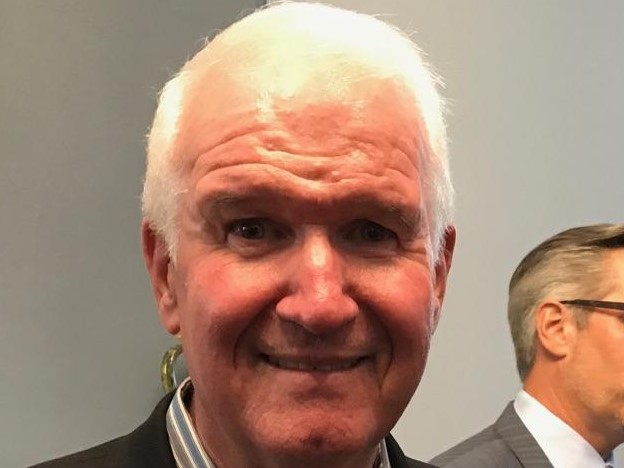New Jersey Leaders Offer Insights in ELEC Series of Retrospective Interviews

During a public hearing in 2000, former Governor Tom Kean referred to independent, Dark Money groups as “termites getting at the roots of democracy.”
When asked by me about these groups during a recent interview as part of the New Jersey Election Law Enforcement Commission’s (ELEC) “History of the Commission Project,” the former Governor did not mince words.
Said Kean: “. . . the idea that people who have no interest in democracy really because their own special interests can put huge amounts of money behind a candidate without you and I knowing that they’ve done it or who it is, is crazy.”
Likewise, former Senate President John Lynch, commenting about Dark Money, said: “The question is, how do you really gain control over them . . . the wishful thinking is, you know, Citizens United would be overturned and all these things would be exposed. But we’re not going to see constitutional amendments, or Supreme Court cases turning back the clock . . .”
These comments were among the many thought-provoking remarks made by individuals who have thus far participated in ELEC’s history tour. The goal of the periodic interviews is to chronicle the impact of policies implemented by the Commission during its 49-year-old history, including campaign finance disclosure, gubernatorial public financing, and lobbying.
The “History of the Commission” project involves video-taped interviews with individuals who have been associated with the Commission or the various laws and regulations it oversees.
Begun in November 2020, the interview series is well underway now. Archived interviews are viewable on the Commission’s website at www.elec.nj.gov/aboutelec/ELEC_OralHistory.htm.
Besides former Governor Kean and former Senate President Lynch, four other individuals have thus far been interviewed. They include: current ELEC Chairman Eric H. Jaso, past Commission Executive Director Lew Thurston, former Assembly Speaker Joe Roberts and former Commission Chairman Ron DeFilippis.
Sometimes interviews focus on how ELEC functions.
During his interview, for instance, Commission Chairman Eric H. Jaso spoke about the backlog of cases confronting him as he joined the Commission and assumed his role as Chairman in 2017. Due to an unusual number of vacancies that left just one member on the Commission (DeFilippis), the agency, which normally meets monthly, could not hold a meeting in 2016. Staff continued to undertake its investigative functions and prepare complaints and final decisions pending approval by a newly constituted Commission.
These enforcement actions finally were presented to the Commission in 2017 when the Commission had three commissioners and Jaso assumed his leadership role. During his interview, the Chairman recalled: “I remember…very large packages with a lot of cases both big and small that had languished for that period of time (2016)” Jaso said the staff’s “efficient” management of the workload helped the commission “get caught up…as quickly as we could…”
Other interviews are more focused on the broader policy areas under ELEC’s purview. Many echo themes discussed in columns I have done for more than a decade, including the need for stronger parties and disclosure by independent spending committees.
Former Assembly Speaker Joe Roberts voiced support for both. He stated, ”But I think, you know, you are seeing the money come…from outside because of the fact that disclosure isn’t really robust. Sometimes it’s not there at all.” As for parties, “. . .well, I think you believe in political parties or you don’t . . . But I think they play a really vital role.”
It is encouraging when the views of prominent political leaders of both parties coincide with recommendations developed by the bipartisan Commission.
In its annual reports, the Commission has urged the Legislature to pass legislation that would require transparency by independent groups and strengthen New Jersey’s political parties.
Among the proposals made to balance independent groups and political parties within the electoral system are the following:
- Require independent groups engaged in electioneering activity to disclose their donors and expenditures;
- Require public contractors to specify contributions to independent groups;
- To exclude political parties from pay-to-play and include special interest PACs under the law;
- To raise the contribution limits applicable to political parties and candidates to account for inflation;
- To allow parties to participate in gubernatorial elections; and,
- Allow county parties to contribute to each other.
These proposals as part of legislative reform would both bring greater transparency to the electoral process in New Jersey, balance the unfair advantage independent, Dark Money groups now have over political parties, and enhance over all public trust in elections by enhancing accountability and transparency.
Jeff Brindle is the Executive Director of the New Jersey Election Law Enforcement Commission.
The opinions presented here are his own and not necessarily those of the Commission.






Jeffrey, another informative article, the proposed reforms are a good start. My wish is more people would be exposed to your articles nationwide.